The managers of a Dundee and Angus based club are inviting locals to be more creative when it comes to funerals – by encouraging people to decorate their own coffins.
Angela Maughan and Kimberly McGill are on a mission to help people take a more artistic approach when it comes to organising memorial services.
They are trustees of Coffin Club Caledonia Dundee and Angus. The group aims to encourage people to talk more openly about funeral planning and be more creative with the kind of service they would like.
That includes inviting them to design their own coffins.
Angela and Kimberly spoke to us as part of Demystifing Death Week 2023 (May 1-7). The week aims to shine a light on bereavement and open up conversations about death and dying.
Club members can decorate their own coffins
One way Coffin Club Caledonia Dundee and Angus encourages its members to be more imaginative with their funeral planning is to invite them to custom-make their own caskets.
Organisers give members the chance to allow their creativity to flow by putting their colouring pens to good use.
Kimberly said: “We can provide flat-pack wooden coffins to buy and club members can also choose cardboard coffins.
“You can decorate your cardboard coffin before you die and have family and friends write messages on it, put photos on it or paint it.
“We explain how we can do all of this in a safe place at our club sessions.”
The club’s block sessions take place at the Malmaison Hotel in Dundee. At the start people are given miniature cardboard coffins. That is to see how they would like their own coffin decorated.
They are then invited to talk about why they have designed it in a particular way.
Angela said: “It can be emotional for people and empowering because they are thinking about it creatively – decorating their own coffin.
“Someone even went as far as to decorate the inside of her coffin and she made herself a Merino wool cushion and blanket because she wanted to be tucked in.
“It’s about inviting people to think about death and dying in a positive way and not to be scared by it.”
Where did the idea for Coffin Club Caledonia come from?
Club trustee Kimberly McGill has worked as a funeral director for the past five years. She explained where the idea for coffin club came from.
She said: “A group of us went to a coffin club training day and we then decided to get together and set up Coffin Club Caledonia Dundee and Angus.
“Coffin Club UK was set up after it was originally created in New Zealand.
“It travelled across the water.”
They founded Coffin Club Caledonia Dundee and Angus in October 2021.
Fellow trustee Angela has worked as a celebrant for the past eight and a half years. She organised the coffin club training day because she felt it was a service needed in the Dundee and Angus area.
“I had been following coffin club for many years and thought it was a great idea.
“I then tried to drum up as many people as I could who were interested and Kimberly was the first one.
“It was been slowly growing since then.”
Death is still a ‘taboo’ subject
Death still remains a taboo subject for many people, Angela and Kimberly have found.
And they want to try and change this.
“The main problem is nobody likes to speak about death,” Kimberly said.
“Everybody dies but nobody wants to speak about it.
“And because nobody likes to speak about it, nobody likes to think about it and what they would like for their send-off.
“They also don’t want to have that conversation with their friends and family.
“So that when the time comes and somebody dies, the family are left panicking trying to figure out what the deceased would have wanted.
“Here at coffin club we provide a safe space for people to talk about death and dying and open up all of these conversations which a lot of people find difficult.”
Various options for funeral services
Kimberly said there are so many options available which people aren’t aware of.
“People think you have to have a service either in the church or at the graveside or a service in the crematorium and that’s the end of it, ” she explained.
“Technically you can hold a service anywhere.”
And people don’t always have to follow the typical ‘traditional’ option for a funeral.
“Many still think that a funeral has to be a 20 minute service, formatted with a man who is dressed as a Victorian with a very sad face who walks in front of a coffin.
“But it doesn’t have to be carried out in this way,” Angela continued.
She is keen to stress they will continue to support anyone who wants to have the traditional 20-minute service at a crematorium with their favourite music, readings and eulogy.
But she also wants to make people aware they can go for something more unusual.
“If somebody wants to do something different – having a celebration of life – separate to a direct cremation, outside what people think of as a ‘normal funeral’, we can offer that.
“We can help with organising services at hotels, golf courses, beaches, art galleries or even botanical gardens.”
Important to recognise grieving process
But while there is the opportunity to give funerals a more celebratory feel, Angela said it is still very important to recognise it is still a ritual for grief and healing.
“We can absolutely create a celebration of life. But a funeral ceremony is still part of the grief process, so we do need to acknowledge there is a loss.
“We have to be mindful that we deal with babies, children, death by suicide, people who have been murdered and sudden death.
“Also we have to bear in mind that not everyone who dies was loved.”
Educating people to help demystify death
Kimberly said part of the process of demystifying death is educating people about what happens to a person’s remains.
“We tell people what happens at crematoriums and explain what happens when people are cremated,” she explained.
“We also inform people about natural burial grounds – which are more environmentally friendly. There is also the option of donating your body to science.
Angela said educating people about funeral choices is very important.
“It is about educating the general public in funeral choice. So that when someone dies, their informed choices have already been made with family members.
“If you have these conversations sooner then the pressure is taken off when relatives go to the funeral director.”
Angela and Kimberly have good relationships with experts and businesses in the death industry. These groups give talks to the Coffin Club Caledonia members.
“We have people from Dundee University come in to talk about body donation, representatives from burial grounds.
“Kimberly talks about her role as a funeral director. I talk about mine as a celebrant as well as talking about wills and power of attorney,” Angela added.
Helping to broaden minds
Kimberly said the one thing coffin club does is broaden people’s minds.
“Most of our clubbers come in with a rough idea of how they imagine their funeral will be and if they want cremated or buried.
“But guaranteed by the end of our sessions, minds will have been changed.
“They realise the service they had in mind wasn’t what they wanted after all and it isn’t right for them.”
She added: “We help to give comfort to a person’s family. So they know the last things they are doing for their loved one, is exactly what they would have wanted.”
There is more information on Coffin Club Caledonia Dundee and Angus. It is free to join and open to all ages.
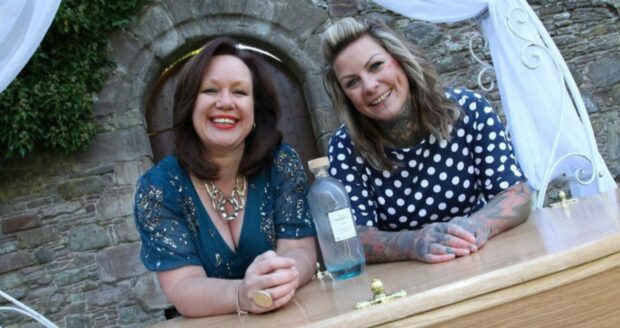
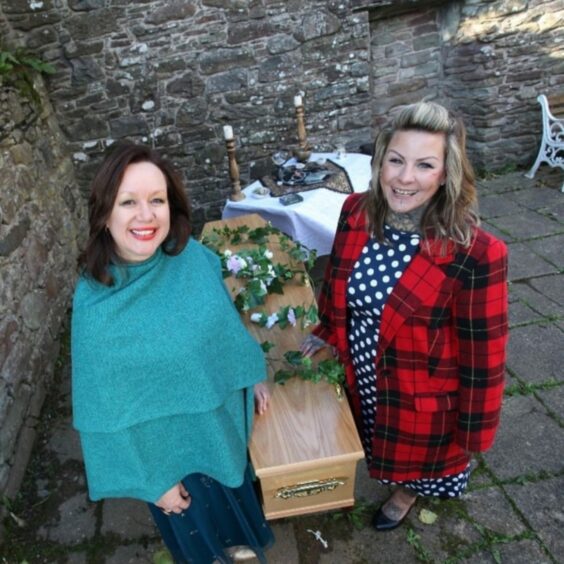
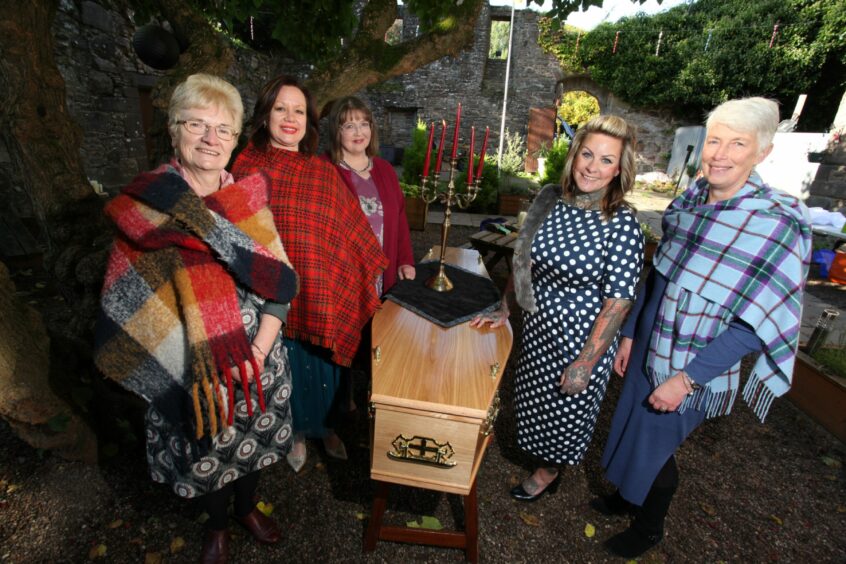
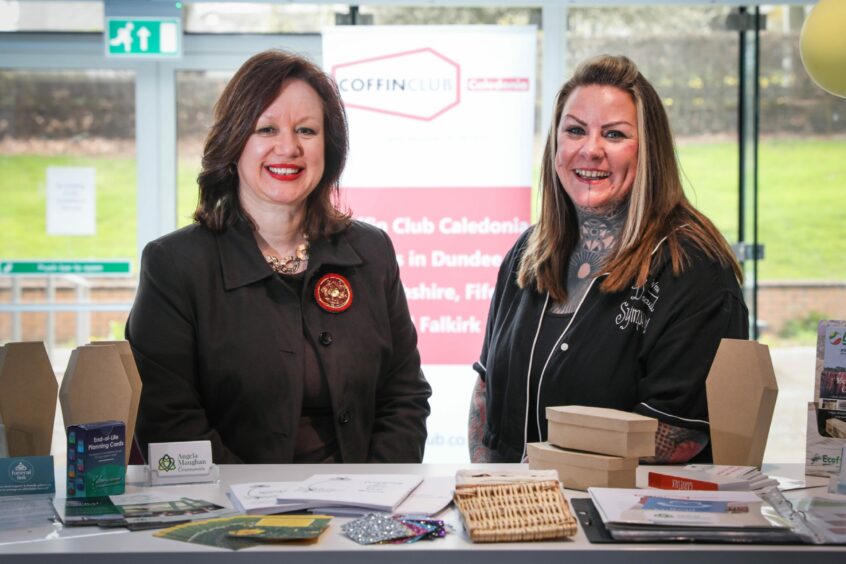
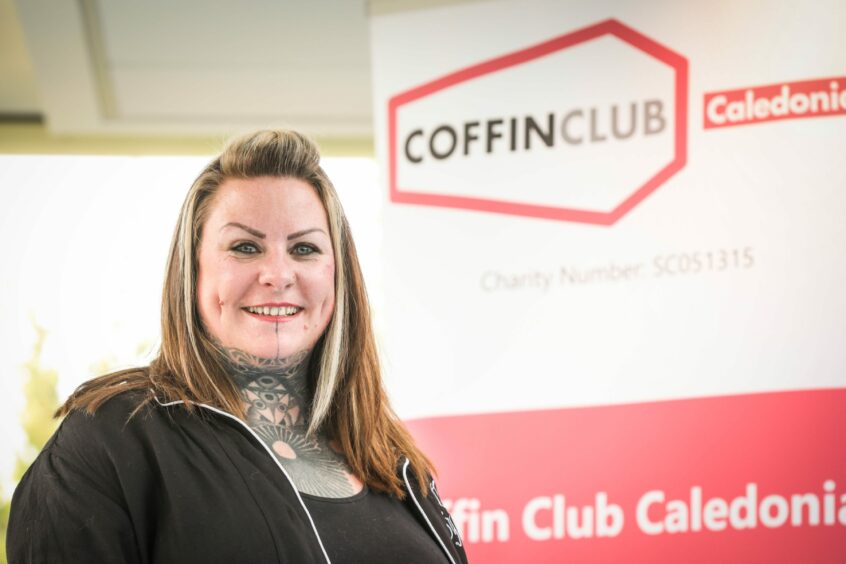
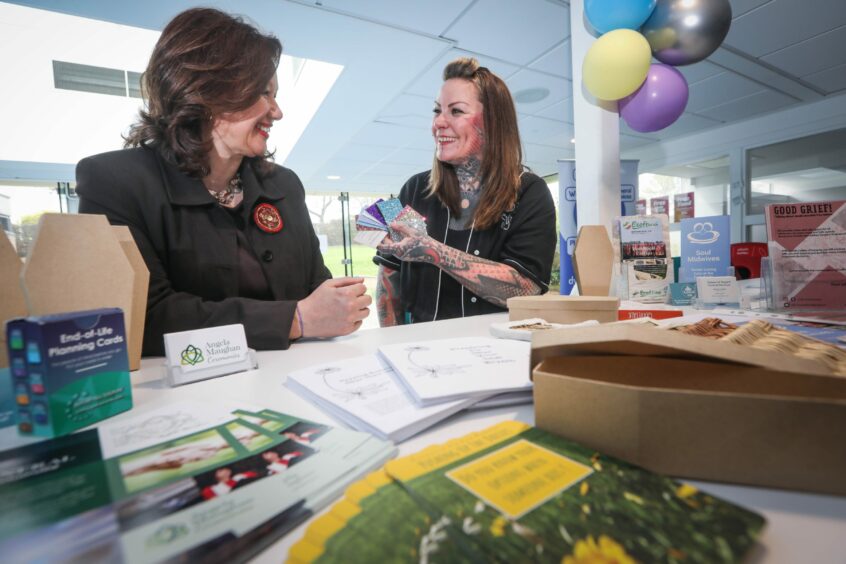

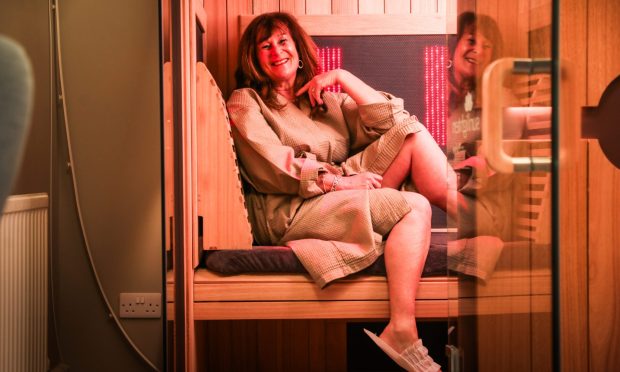


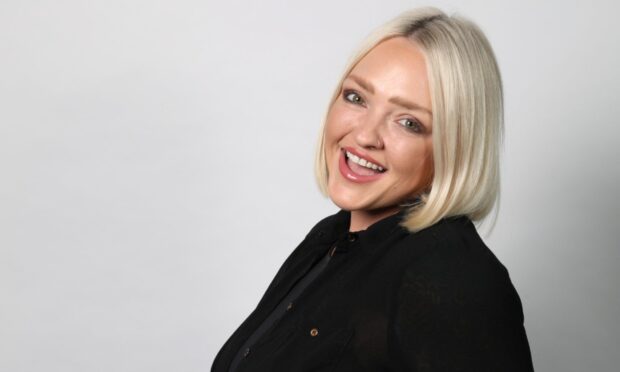






Conversation